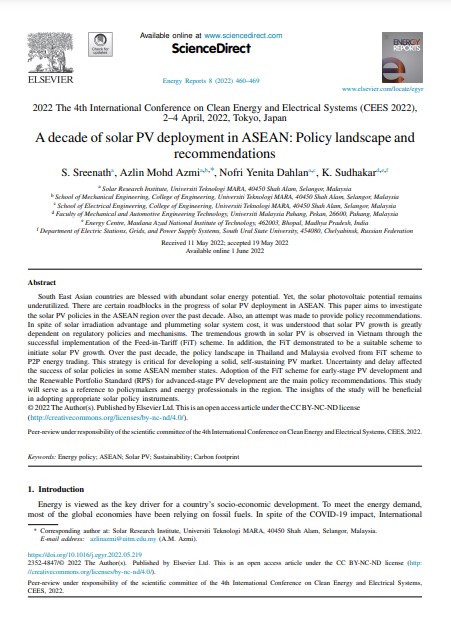
Keyword(s)
Author(s)
a) S. Sreenath, a,b) Azlin Mohd Azmi, a,c) Nofri Yenita Dahlan, d,e,f) K. Sudhakar
Country(ies)
Publisher
Published Date
Access
DOI
South East Asian countries are blessed with abundant solar energy potential. Yet, the solar photovoltaic potential remains underutilized. There are certain roadblocks in the progress of solar PV deployment in ASEAN. This paper aims to investigate the solar PV policies in the ASEAN region over the past decade. Also, an attempt was made to provide policy recommendations. In spite of solar irradiation advantage and plummeting solar system cost, it was understood that solar PV growth is greatly dependent on regulatory policies and mechanisms. The tremendous growth in solar PV is observed in Vietnam through the successful implementation of the Feed-in-Tariff (FiT) scheme. In addition, the FiT demonstrated to be a suitable scheme to initiate solar PV growth. Over the past decade, the policy landscape in Thailand and Malaysia evolved from FiT scheme to P2P energy trading. This strategy is critical for developing a solid, self-sustaining PV market. Uncertainty and delay affected the success of solar policies in some ASEAN member states. Adoption of the FiT scheme for early-stage PV development and the Renewable Portfolio Standard (RPS) for advanced-stage PV development are the main policy recommendations. This study will serve as a reference to policymakers and energy professionals in the region. The insights of the study will be beneficial in adopting appropriate solar policy instruments.